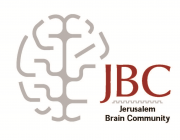
Rami Yaka
In terms of lost lives and productivity, drug addiction remains one of the most serious threats to public health worldwide. Addiction can be defined as the loss of control over drug use, or the compulsive seeking and taking of drug regardless of the consequences. Indeed, extensive evidence accumulated in the past two decades suggests that addiction is a chronically relapsing brain disease. Available treatments for addiction remain inadequately effective for most individuals. Consequently, there is intense interest in better understanding the neurobiology of addiction in the hope that such knowledge will lead eventually to more effective treatments.
New insights into our understanding of drug abuse and addiction have revealed that the desire to use drugs and the process of addiction depend on effects on brain function. Drugs of abuse have been hypothesized to produce their rewarding effects by neuropharmacological actions on a common brain reward circuit called the reward system. The reward system presumably evolved to mediate an individual's response to natural rewards, such as food, sex and social interaction. Drugs of abuse activate these reward pathways, in the absence of natural rewards, with a force and persistence that is not seen under normal conditions. Over time, repeated drug exposure causes adaptations in the brain's reward pathways, which seem to have two major consequences. First, during periods of active drug use or shortly after ceasing drug intake, the ability of natural rewards to activate the reward pathways is diminished, and the individual experiences depressed motivation and mood. Taking more drugs is the quickest, easiest way for an addict to feel 'normal' again. Second, drug use causes long-lasting memories related to the drug experience, such that even after prolonged periods of withdrawal (months, years), stressful events or exposure to drug-associated cues can trigger intense craving, and in many cases relapse, in part by activating the brain's reward pathways.
My laboratory is focused on elucidating the cellular and synaptic mechanisms by which drugs of abuse alter ion channels function in different brain structure within the reward system. Using multidisciplinary approach involving the most advanced electrophysiological, biochemical and behavioral techniques, we study how different classes of drugs such as alcohol, cocaine and marijuana, modulate the function of ion channels in different stages in the development of addiction and following withdrawal from the drugs. Alterations in ion channels function following drugs exposure are modeled in laboratory animals using two common methods of repeated drug exposure; the drug is administered either by a systemic injection or self-administered intravenously following an operant response. Specifically, we are studying how the normal functions of the major excitatory (Glutamate) and inhibitory (GABA) ion channels in the brain are altered in animals that are exposed to different drugs and the corresponding changes in the signaling cascades that leads to addictive behaviors
We believe that this approach will lead to a better understanding of the molecular mechanisms that underlie the development and maintenance of addiction and will enable us to translate basic knowledge of addiction into clinical progress.

